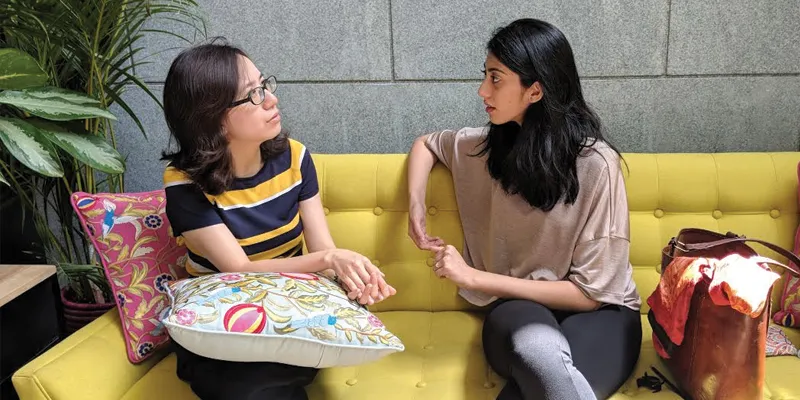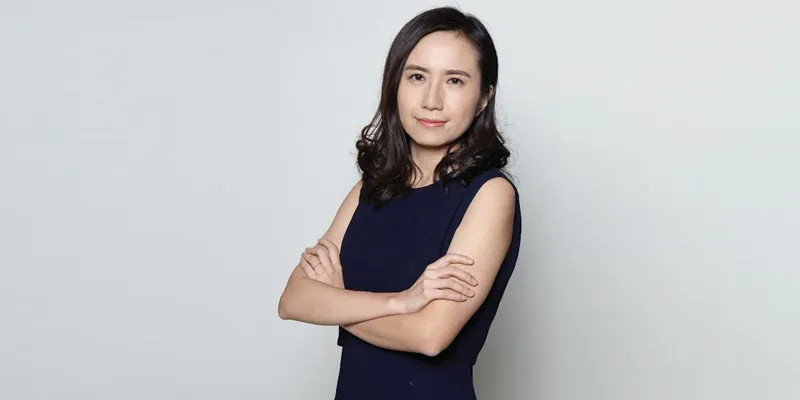How a Chinese entrepreneur built her startup in vernacular India, raised $50M from Tencent, etc.
For NewsDog’s co-founder Yi Ma, 50 million seems to be a lucky number. Her news app has 50 million downloads on Google Play Store, and Chinese investor Tencent and others invested $50 million in her company. Yi Ma doesn’t speak Hindi, Telugu or Kannada, and yet has built a successful business around audiences who do. Over a pot of jasmine tea, Yi Ma explains how she made inroads in vernacular India.
YourStory: NewsDog is a Beijing-based news app that has Chinese founders and Chinese investors. Instead of targeting Chinese audiences, you chose digital India. Why?
Yi Ma: We saw huge potential in the digital and mobile users in India. Early in 2016, we saw smartphones getting popular, and the online population in India increasing. From 400 million smartphone users in 2017, now smartphone shipments are about 100 million every year.
China saw this surge about five to six years ago, and a news app called Toutiao saw this as an opportunity and jumped in. Newsdog looked at similar, emerging markets and wanted a market different from the West. India’s digital market is big due to its population, and it’s a big market opportunity for us. So, we chose to set up shop in India.

YS: Most content companies target the English speaking, digital population. You moved to regional languages. Why?
YM: We started with English language on our app, but soon realised English wasn’t that engaging for Indian smartphone users as the English market is quite saturated. We were looking for exponential growth, and that was not there in the English-speaking population.
When we moved to Hindi, it made up 60 percent of our online population and we saw mass engagement. This was the right direction for us. Over 600 million users come from Hindi and other vernacular languages. The users are more engaging. So, we started building in other languages. We look at user data, and wherever the users are more engaging, we get there.
YS: What languages do well for digital engagement, besides Hindi?
YM: I will say, the order is... Hindi, Tamil, Telugu.
YS: NewsDog has more 50 million downloads. How do you control the quality of content?
YM: At NewsDog, we look at content in two ways. First, we need to have a control on article quality. We need to have a benchmark of what can be shown, what cannot be shown, what can be shown to a larger group, what can be shown to a very limited set of people. We have editors in different languages who decide what can be published or not.
Second, we need to respect all types of interests and content. We are not trying to be a New Yorker. NewsDog is different from mainstream media. We recommend articles based on users’ interests. If the audiences want to read about astrology, we give them astrology; if they are interested in Bollywood celebrities, we give them that.
YS: How do you run a team that speaks a different language than you?
YM: Yes, communication can be an issue in India as I don’t speak Hindi, Tamil or Telugu. So, when I conduct my meetings in India, I can sense that people I interact with me are doubtful at the beginning. I am not sure whether it is because I am a woman, or because I don’t speak their language.
I usually take a colleague who does speak the language, and I try and learn as much as possible about Indian culture. It then gives them the impression that she is serious about the Indian market, and not a complete stranger. In the end, it all works out.

YS: Do you think of yourself as an entrepreneur or as a woman entrepreneur?
YM: I just think of myself as an entrepreneur. When it comes to entrepreneurship, I don’t see gender. I work hard, and so does everyone. Having said that, one doesn’t see many women entrepreneurs in the startup world, even in China. I think it’s growing, but still, the volume is much lesser than men.







